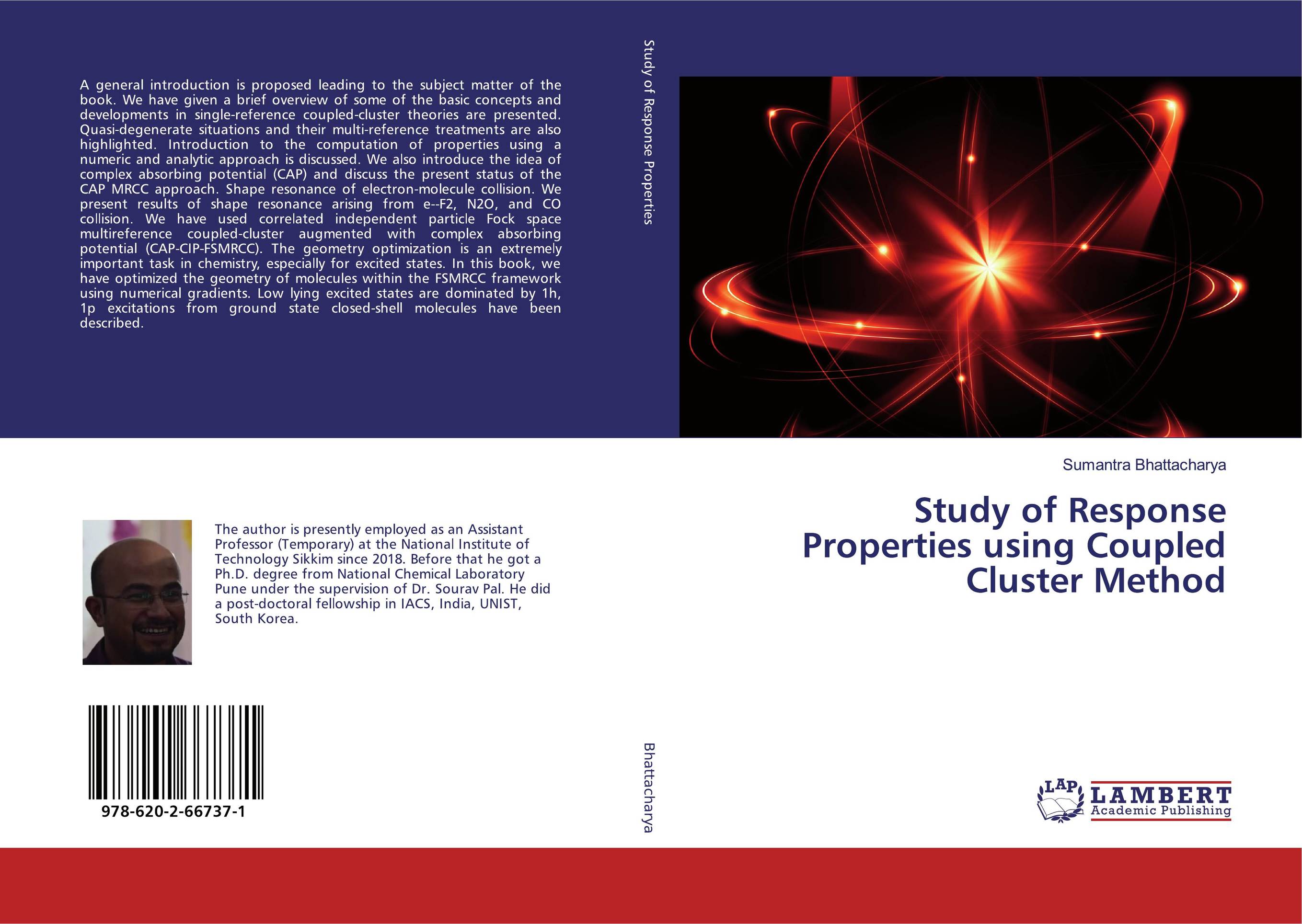| Поиск по каталогу |
|
(строгое соответствие)
|
- Профессиональная
- Научно-популярная
- Художественная
- Публицистика
- Детская
- Искусство
- Хобби, семья, дом
- Спорт
- Путеводители
- Блокноты, тетради, открытки
Study of Response Properties using Coupled Cluster Method.

В наличии
| Местонахождение: Алматы | Состояние экземпляра: новый |

Бумажная
версия
версия
Автор: Sumantra Bhattacharya
ISBN: 9786202667371
Год издания: 2020
Формат книги: 60×90/16 (145×215 мм)
Количество страниц: 232
Издательство: LAP LAMBERT Academic Publishing
Цена: 47226 тг
Положить в корзину
| Способы доставки в город Алматы * комплектация (срок до отгрузки) не более 2 рабочих дней |
| Самовывоз из города Алматы (пункты самовывоза партнёра CDEK) |
| Курьерская доставка CDEK из города Москва |
| Доставка Почтой России из города Москва |
Аннотация: A general introduction is proposed leading to the subject matter of the book. We have given a brief overview of some of the basic concepts and developments in single-reference coupled-cluster theories are presented. Quasi-degenerate situations and their multi-reference treatments are also highlighted. Introduction to the computation of properties using a numeric and analytic approach is discussed. We also introduce the idea of complex absorbing potential (CAP) and discuss the present status of the CAP MRCC approach. Shape resonance of electron-molecule collision. We present results of shape resonance arising from e--F2, N2O, and CO collision. We have used correlated independent particle Fock space multireference coupled-cluster augmented with complex absorbing potential (CAP-CIP-FSMRCC). The geometry optimization is an extremely important task in chemistry, especially for excited states. In this book, we have optimized the geometry of molecules within the FSMRCC framework using numerical gradients. Low lying excited states are dominated by 1h, 1p excitations from ground state closed-shell molecules have been described.
Ключевые слова: Quantum Chemistry, Coupled Cluster Theory, Fock SPace Multi Reference Coupled Cluster Theroy, Shape Resonance, GRADIENT



